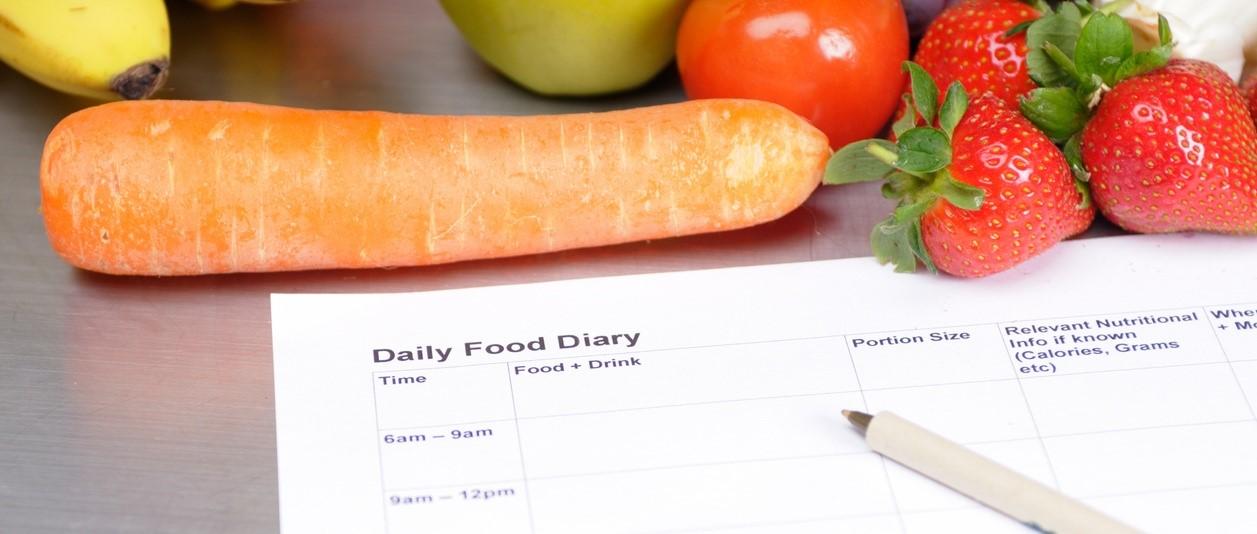
Have a happy and healthy Ramadan
Peer reviewed by Dr Krishna Vakharia, MRCGPLast updated by Amberley DavisLast updated 9 Feb 2024
Meets Patient’s editorial guidelines
- DownloadDownload
- Share
- Language
- Discussion
Depending where you are in the world, 2024 Ramadan starts on March 10 or 11. We explore what this festival can do for your body and mind and share expert health tips, so that you can make this Ramadan as happy and healthy as possible.
In this article:
Video picks for Healthy eating
Continue reading below
The health benefits of Ramadan
For Muslims around the world, the Holy month of Ramadan is a special time of spirituality, self-improvement, and reflection. The practice of fasting from dawn to dusk is one of the key pillars of Islam, bringing Muslims closer to Allah and their loved ones. Alongside spiritual wellness, there are other health benefits to this holy month.
Benefits of fasting
Back to contentsFasting during the month of Ramadan is a mindful act that encourages self-discipline, empathy, generosity, and many other positive qualities. Although you're fasting for your religion and not your health, in the last 10-15 years scientific research has been shedding more light on the many ways this act can benefit for you.
The bulk of this research is focused on intermittent fasting, a style of fasting that also describes the Ramadan ritual - not eating for a prolonged, set period each day and restricting food to scheduled times.
There's now strong evidence that this flips the metabolic switch - routinely changes how your body uses up energy - and that this triggers reactions in your body that may boost your mental and physical health, including better resistance to diseases such as1:
Degenerative brain diseases.
This field of research is making new discoveries all the time, and ongoing trials are also looking into intermittent fasting for cancer, asthma, arthritis, and multiple sclerosis. The positive effects of this fasting style are significant and research is now identifying a trend between intermittent fasting and living for longer1.
Aids weight loss
When you are fasting intermittently, your body becomes more efficient at burning energy. Studies of weight loss during Ramadan show that many people end the holy month with less fat2 and slimmer waists3. This is important because a large waist circumference increases your risk of several problems, like coronary heart disease and diabetes.
Improves heart health
The way that your body uses energy during metabolic switching has also been shown to lower high blood pressure, cholesterol levels, and heart rate1. In turn, this lowers your risk of cardiovascular diseases, including stroke, obesity, and type 2 diabetes4.
Helps to manage or prevent type 2 diabetes
One of the most researched benefits of Ramadan fasting is reduced insulin resistance. This means that your cells become better at controlling the amount of sugar in your blood - called your blood glucose levels - which helps prevent or manage type 2 diabetes.
However, results are mixed and more research is needed to better understand how Ramadan fasting effects insulin sensitivity5.
Boosts brain health
Scientists are also finding that daily calorie restriction could be good for your brain, because it boosts the production of new brain cells. Long-term, this may significantly improve memory6 and even slow the progress of age-related neurological diseases7.
Although Ramadan fasting is temporary, evidence shows that brain cells still increase over this short period, suggesting benefits can be experienced in the short-term8.
Supports physical fitness
Intermittent fasting can trigger your body to use energy more efficiently and this can have noticeable physical benefits. For example, some people doing this fasting pattern have found that they have better endurance while running1.
Continue reading below
Benefits of traditional food
Back to contentsThe kind of foods you eat before dawn (suhoor) and after sunset (iftar) will vary depending on where you are in the world, but healthy eating in Ramadan is possible - there are some widespread favourites packed with nutrients that can support you during fasting hours.
Knowing how these foods keep you going during Ramadan can help you to keep choosing healthier options during suhoor and iftar.
Some of the healthiest options include:
Dates
These nutritious sun-dried fruits are customary because they were one of Prophet Muhammad's most desired foods. Dates are packed with carbs, fibre, and important vitamins and minerals that boost energy levels, support the digestive system, and improve brain, nerve, and muscle function.
Fresh fruit
Healthy eating in Ramadan often involves plenty of fresh fruit. These help to load you with vitamins and rehydrates you in between fasting hours. Popular fruits during suhoor and iftar include:
Melons - 90% water and great for relieving tummy ache and other stomach problems.
Pomegranate seeds - contain antioxidants and important vitamins, and aids digestion.
Bananas - easy to digest and a great source of energy.
Fish and chicken
Unprocessed, non-fatty, and high-protein meats like fish and chicken help to make your dishes filling yet light.
Trying to digest a heavy meal throughout the day can make you feel more groggy and tired, and could cause stomach problems like acid reflux, gas, and bloating. Fish is also high in omega-3 fatty acids which can keep your brain sharp and mood up.
Lentils
Lentils add bulk to a variety of popular Ramadan dishes - including soups and dhals - and are packed with protein, fibre, and complex carbs to help you burn energy slowly throughout the day. They also feed your gut with good bacteria and can lower cholesterol and blood sugar.
Benefits of habit breaking
Back to contentsBecause you will be fasting for a month, Ramadan is the perfect time to ditch any bad habits for good, like smoking and sugary food. It might feel like a whole other challenge to refrain from smoking once it's no longer a religious observation, but research does indicate that many Muslims find it easier to control their long-term cravings post-Ramadan.
A faith-based quit smoking intervention during Ramadan
During Ramadan 2015, an experimental behavioural intervention programme was trialled on Malay male smoking Muslims. The programme included religious rulings on smoking, and materials on how Ramadan can be an opportunity to quit permanently. A significant number of those taking part in the programme were able to break the habit of smoking after Ramadan ended9.
Continue reading below
Benefits of family time
Back to contentsSharing in the rituals and traditions with your family and friends can create a real sense of togetherness - one of the most obvious benefits of Ramadan. This is especially important if fasting becomes challenging.
Smriti Joshi, a lead psychologist at Wysa, says: "For some, the thought of not being able to follow or stick to fasting during this holy month can bring up difficult feelings like sadness, shame, and embarrassment."
However, there are plenty of Holy month activities that bring families together - perhaps more than any other time in some households - and these moments can be really special and fulfilling. They can be a powerful counter measure to the fear of isolation, which Joshi says can be a real mental health risk during fasting.
Family togetherness at Ramadan:
Enjoying family time during iftar and suhoor.
Helping your parents prepare food for iftar or suhoor.
Inviting your wider family over for suhoor.
Carrying out charitable tasks as a family.
Going to the mosque together.
Praying tahajjud together.
Celebrating Eid al-Fitr, the end of Ramadan, feasting and exchanging gifts with family and friends.
Make this Ramadan a healthy and happy one
Back to contentsWe've looked at how Ramadan can nurture both body and mind. What else can you do to make this Ramadan your happiest yet?
Top tips
Drink plenty of fluids at iftar and suhoor - and avoid too much dehydrating salty foods.
Counteract changing sleep patterns by eating foods that promote good quality sleep - "when our bodies aren't fuelled sufficiently, it means our brains aren't either - and this can mean we don't sleep well," says Joshi.
Think about any unhealthy habits you're abstaining from and take it as proof that you have the ability to break them after Ramadan.
If changing diet habits cause constipation - opt for high-fibre foods and try light exercise after iftar.
Further reading
Back to contentsPatient picks for Healthy eating

Diet and nutrition
How to comfort eat healthily in winter
When the weather gets colder, many of us look forward to getting cosy indoors with hot and hearty winter comfort foods. However, if these aren't healthy, they can make us feel tired and sluggish when the days get shorter and darker. With some small changes, however, it's possible to create tasty, comforting meals that are good for you too.
by Victoria Raw

Diet and nutrition
Why keep a food diary?
More people are putting pen to paper to record their thoughts, emotions, and behaviours. If you're concerned about your eating habits, or feel they could be linked to physical symptoms or mood changes, a food diary can map what you eat against how you feel, so you can identify patterns that are damaging to your health and wellbeing.
by Amberley Davis
Continue reading below
Article history
The information on this page is peer reviewed by qualified clinicians.
9 Feb 2024 | Latest version
17 Mar 2023 | Originally published
Authored by:
Amberley Davis

Ask, share, connect.
Browse discussions, ask questions, and share experiences across hundreds of health topics.

Feeling unwell?
Assess your symptoms online for free
Sign up to the Patient newsletter
Your weekly dose of clear, trustworthy health advice - written to help you feel informed, confident and in control.
By subscribing you accept our Privacy Policy. You can unsubscribe at any time. We never sell your data.